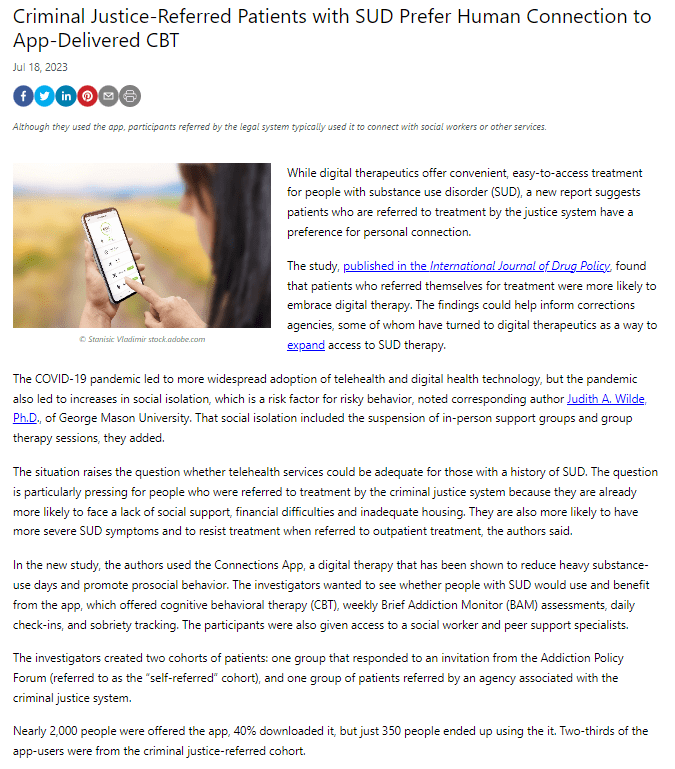Criminal Justice-Referred Patients with SUD Prefer Human Connection to App-Delivered CBT
While digital therapeutics offer convenient, easy-to-access treatment for people with substance use disorder (SUD), a new report suggests patients who are referred to treatment by the justice system have a preference for personal connection.
The study, published in the International Journal of Drug Policy, found that patients who referred themselves for treatment were more likely to embrace digital therapy. The findings could help inform corrections agencies, some of whom have turned to digital therapeutics as a way to expand access to SUD therapy.
The COVID-19 pandemic led to more widespread adoption of telehealth and digital health technology, but the pandemic also led to increases in social isolation, which is a risk factor for risky behavior, noted corresponding author Judith A. Wilde, Ph.D., of George Mason University. That social isolation included the suspension of in-person support groups and group therapy sessions, they added.
The situation raises the question whether telehealth services could be adequate for those with a history of SUD. The question is particularly pressing for people who were referred to treatment by the criminal justice system because they are already more likely to face a lack of social support, financial difficulties and inadequate housing. They are also more likely to have more severe SUD symptoms and to resist treatment when referred to outpatient treatment, the authors said.


